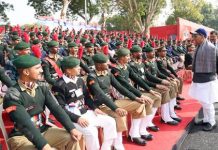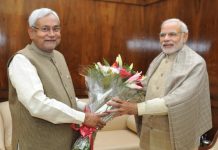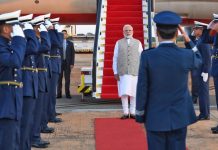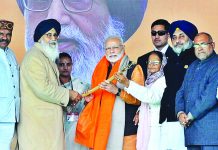The statements of the mothers of the two podium finishers at Paris Olympics oozed maturity and grace, as they said that winning gold or silver medal would never come in the way of their bond by Humra Quraishi
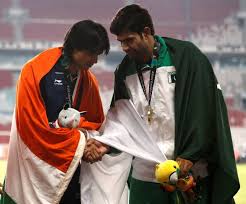
Two positives stood out last week. Foremost, the statements of the two Olympic stars, India’s Neeraj Chopra and Pakistan’s Arshad Nadeem and also of their mothers greatly impressed. Their statements dripped with maturity and grace, relaying sentiments along the strain that winning gold or silver medals wouldn’t ever come in way of their bonding. Both the Javelin throwers worked very hard and so it’s okay if one won silver and the other gold…both are like brothers. Nationalities or regions or religions shouldn’t come in the way of human bonding and definitely not in the lives of true sportsmen!
Then, the interim prime minister of Bangladesh, Muhammad Yunus, also held out some hope for humans, when in his address he dwelt on protection of the minority population in Bangladesh and to halt violence …refrain from all kinds of violence. And the way he emphasized on this, showed the much required urgency. Minority population and properties ought to be protected in every civilized country. Vulnerable, they find it difficult to protect themselves from mob attacks coupled with destruction and loot. It’s the establishment’s foremost duty to save lives and livelihoods of the minority communities. Otherwise there’s little point in having a government!
Getting back to our country, let us dwell on the dark realities that continue to stand out. Little point repeating that infrastructures are failing and falling apart, and to compound the gravity, the much hyped assurances by the sarkar of the day too seem failing. And this holds out in almost every sector; and definitely vis-à-vis the farmers. They haven’t got their much promised dues. The sore fact is that we, sitting in the urban locales, are not even aware of the disadvantages faced by our farmers as they suffer huge setbacks and risks.
The last week’s documentary film – Seed Stories – was screened at the IIC here in New Delhi. The documentary, directed by Chitrangada Choudhury and Aniket Aga, focuses on a particular village in the Niyamgiri mountains of the Eastern Ghats of Odisha.
It highlighted how this village and the wider region are “changing irreversibly due to the arrival of genetically modified cotton seeds and their associated agrochemicals…how this is reshaping a geography and people immersed in agro-ecological knowledge, and altering their attitudes towards agriculture, food and ecology.”
Dwelling on the aftermath caused by the usage of pesticides and also the moving away from the cultivation of the traditional crops, it was indeed an eye-opener.
The only hope for this region and its farmers is that there’s an effort underway to counter this: Ecologist Dr. Debal Deb and his 3-member team are conserving over a thousand endangered ancient rice varieties. Not to be overlooked the fact that the Eastern Ghats region of Odisha is one of the surviving biodiversity hotspots in the world, where (indigenous) Adivasi communities, such as the Kondhs, possess knowledge that allows them to grow multiple crops with their seeds, which have evolved over the centuries.
Celebrating August icons
Come August and stand out the birthdays of three extraordinary persons – writer Khushwant Singh, poet Gulzar and veteran actress Vyjayanthimala Bali.
Khushwant Singh – Khushwant Singh celebrated two birthdays – February 2 and August 15. Before I write any further, let me hasten to add the ‘why’ to the two birthday celebrations. As he would explain: My father was certain that I was born at the start of spring, so February 2, my birthday date. But my paternal grandmother was more than sure that I was born in the midst of bhandon/ monsoon, so August 15th my second birthday!
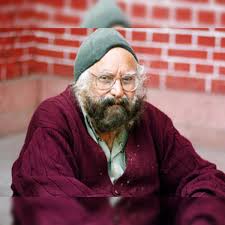
Born in 1915, in village Hadali in the undivided Punjab, Khushwant lived life at his own terms. He spoke fearlessly. He wrote along the same strain. No contradictions. Just no hypocrisy. None of the modern day complications nor gadgets. Till the end, he hadn’t got himself a computer nor a secretary and not a mobile phone. As he would say, “Mere bas ka naheen hai yeh sab …I’m happy writing on a notepad.”
The years that I’d been interacting with him, there were several of those offbeat aspects that had stood out. There were never any sermons. Only subtle relays — No wasting time in gossip or in those useless wanderings. No facades, no communal biases, no lies and no deceit.
Khushwant detested the communal lot. “Today, my only worry is the rise in Right-wing fascist forces in the country … the present generation should be aware of the rise in communal politics and the dangers involved.”
In an interview given to me shortly after his book ‘The End of India ‘( Penguin) was published in the spring of 2003, he had said, “If we love our country we have to save it from communal forces. And though the liberal class is shrinking, I do hope the present generation rejects the communal and fascist policies.”
Khushwant’s views on death were stark, “I’m not scared of death. Death is inevitable, so no brooding about it, be prepared for it, as Asadullah Khan Ghalib has aptly put across – ‘rau mein hai raksh-e-umar kahaan deykheeye thammey /nai haath baag par hai nah pa hai rakaab mein (age travels at a galloping pace /who knows where will it stop /we do not have the reins in our hands /we do not have our feet in the stirrups.)”
“I see death as nothing to be worried or scared about. Earlier whenever I ‘d feel upset or low I used to go to the cremation grounds. It has a cleansing effect, worked as a therapy for me…Yes, I do think of death …No , don’t believe in the any of the rebirth theories …Often I tell Bade Mian (God) that He’s got to wait for me, as I still have work to complete!”
“Yes, I do fear incapacitated by old age – high blood pressure, prostrate, deafness, loss of vision …What I dread is thought of if I go blind or stone deaf or end up with a stroke.”
“Why I was keen for burial, because with that you give back to the earth what you have taken …now it will be the electric crematorium.”
Gulzar – It’s rare to come across a poet whose eyes relay poetry. Look towards Gulzar saab’s emotion laden eyes …there’s something about his eyes, his very personality that impacts.
The more I read his verse, I am left amazed by the expanse, that sheer sensitivity…. Also, there’s that stark simplicity in his words and verse. With that, that instant connect… Little wonder, his fans are spread out, right from our land to those other lands. After all, poets don’t believe in boundaries or barriers.
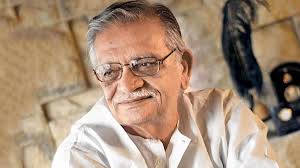
The very first time I met Gulzar saab, it was an experience in itself. This was almost twenty years back, around the summer of 2005, when I met him for an interview for a national daily. He was putting up at New Delhi’s India International Centre, so it was decided that I would meet him over breakfast at the tea lounge.
And within minutes as our conversation moved towards the Kashmir Valley, Gulzar saab was quietly crying in that emotional way. Telling me, “The Kashmir Valley had always fascinated me to such an extent that Raakhee and I decided to go to Srinagar for our honeymoon …Raakhee and I often tease our daughter Bosky that she was conceived there in the Kashmir valley… In Srinagar, we stayed at the Oberoi hotel and the garden had two majestic Chinars. I called them Badshah and Begum, or Jehangir and Noorjehan,… I saw them again and they looked so forlorn …Kashmir is an integral part of my emotions, it’s a region close to the region of my heart. I was earlier even planning to make a film on the Valley. I’d even named the film – it was to be titled ‘Iss Vaadi Mein’ and it was based on Krishna Chander’s short story collection ‘Kitaab ka Kafan’, and it dealt with two lovers in the two parts of the Valley and how they try to overcome the military barriers. Sadly, the film could not be made as the Kargil war had broken out.”
And several years back when Gulzar’s story collection – ‘Half a Rupee Stories’ ( Penguin) was launched in New Delhi, I couldn’t attend its launch as one of my cousins had met with a fatal road accident in Uttar Pradesh so I had to rush there. On getting back, it was touching to see Gulzar saab dedicated one of his short stories in this collection, to me, with this accompanying one-liner – “We shared a lot of Kashmir though neither of us is from there.”
Vyjayanthimala Bali – After more than 54 films, Vyjayanthimala Bali quit films, when she opted for marriage. As she’d quipped, “Thereafter, I did not retire but relinquished films.” Later, she made inroads into the political sphere and as Member of Parliament she represented the South Madras constituency.
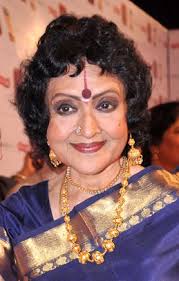
During the course of an interview, when I’d asked her why she moved towards the political sphere, she’d detailed: “Well, my husband thought that I had the makings of a politician, so he wanted me to join politics. In fact, it happened slowly — in the beginning we toured Tamil Nadu and saw the then ground realities and that people were disillusioned ….Wherever we toured, we saw for ourselves another reality: how people loved Mrs Indira Gandhi and so when we visited New Delhi, we met Indira Gandhi and told her the state of affairs in Tamil Nadu, and even told her about my own inclination towards joining politics. She’d smiled encouragingly …and that’s how I joined politics.”


